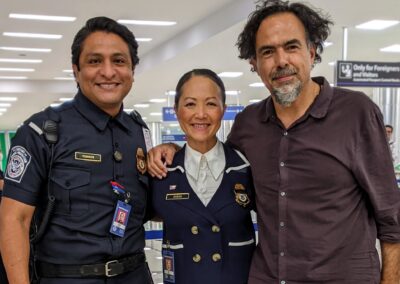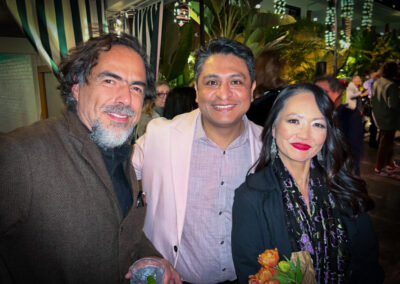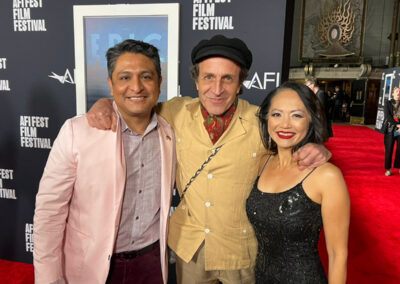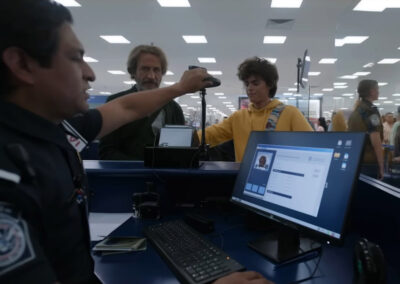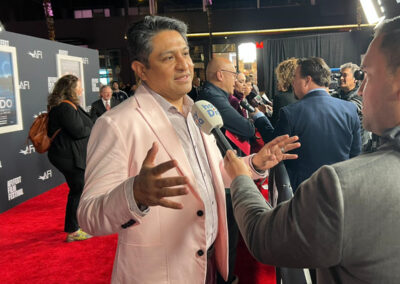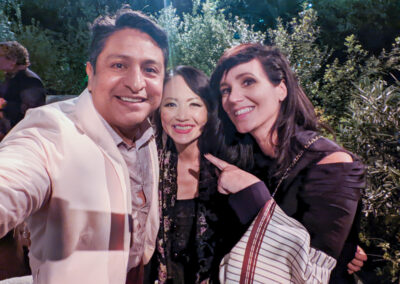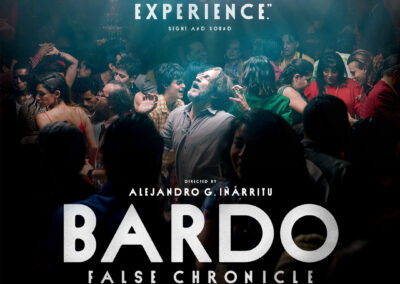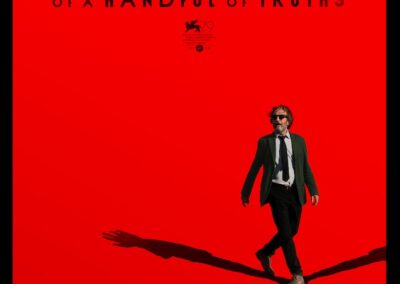Notes
There is almost too much to share about BARDO. It was called LIMBO at one point, and the pandemic delayed production for about a year. Being cast just before that gave me something to look forward to. The day before the shoot, I finally cut my long covid hair.
Alejandro has talked about how characters live in his mind for so long that he knows when he meets the right actor and that he finds it in our eyes and that it is like meeting an old friend. I remember having him hold a camera very close and focused on my eyes when we first met and did some scene work. Bardo is about so many things, but what inspired it and drove much of it were his experiences with immigrating and realizing that you can never truly go back; about what he shares with the millions of us living a sort of “hybrid” life.
I was given a new life in The U.S. when I was only 8 years old when I met my father, who had left me when I was very young to pursue his dream to the north. Iñárritu has talked about not remembering his childhood, which happened to me as a culture shock. But, some dreams remained, and BARDO is about that space and these experiences that are unique to many of us.
His last film in Mexico was “Amores Perros,” and I smile remembering how I would speak to anyone who would listen in theater class about this new film by an exciting Mexican director about Mexico City and all the actors in it. I wish I could go back and tell that young actor that one day he’d work on Iñárritu’s next great Mexcian film about two decades into the future. “You may miss the birth of your second daughter while doing it”, I would have to add. Okay, I guess that conversation would have to be much longer about my grandmother’s and father’s death, and about finally meeting my mother and that my future wife would meet her on the same day. Well, what do you know, I’d have my False Chronicle of a handful of Truths.
Working on this film gave me the pleasure of helping a great director weave his retrospective visual poem. I was able to use who I am, with my lived experience living in the U.S. and my understanding of the happenings in that back-and-forth literal border, to give life to the symbolic one.

